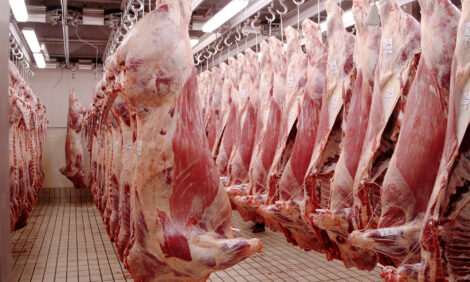



The Worst Farming Year Since 1973
IRELAND - Poor commodity prices, unfavourable exchange rates and dreadful weather conditions have resulted in a severe income crisis for the farming community, as Irish farm incomes are down 30 per cent, according to first official estimates from Ireland's Central Statistics Office (CSO).The CSO income data reveals that the value of all farm output has dropped 19 per cent in 2009 to just €4.7bn (£4.25bn), with all sectors suffering to some extent.
Worst affected was the country's cereals sector, where output dropped by 52 per cent in value to €96m (£86m). This was closely followed by dairy, where output was down 35 per cent to €1.06bn (£954m), due mainly to the decrease in milk prices.
Irish farming's largest sector, beef, was down 11 per cent to €1.49bn (£1.39bn).
After allowing for input costs and subsidies, the CSO estimates that the operating surplus for Irish agriculture in 2009 is down by 30.3 per cent on last year at €1.6bn (£1.4bn) - and this follows an 11 per cent decrease in 2008.
Padraig Walshe, Irish Farmers' Association (IFA) President said: "These CSO figures mirror the preliminary estimate carried out by IFA two weeks ago, and confirm the devastating year for farm families as prices fell across all sectors. Coming on top of an income drop of 11 per cent in 2008, this represents the worst income crisis for the sector since Ireland joined the EEC in 1973.”
He said Government cuts already imposed across vital farm schemes are now having a major impact on farm income and this will be more severely felt in 2010.
The IFA President said, “The stark reality is that average farm income is now at €13,000, and €16,000 for full-time farmers. The Government proposal to close REPS is simply not a runner as it will collapse the already dire incomes of at least 20,000 drystock farmers and leave them with incomes below €10,000.”
Mr Walshe urged the Minister for Finance to support the productive agriculture sector through maintaining funding for vital farm schemes, and ensuring that changes to taxation are equitably applied and do not undermine the competitiveness of the exporting sectors.
TheCattleSite News Desk


